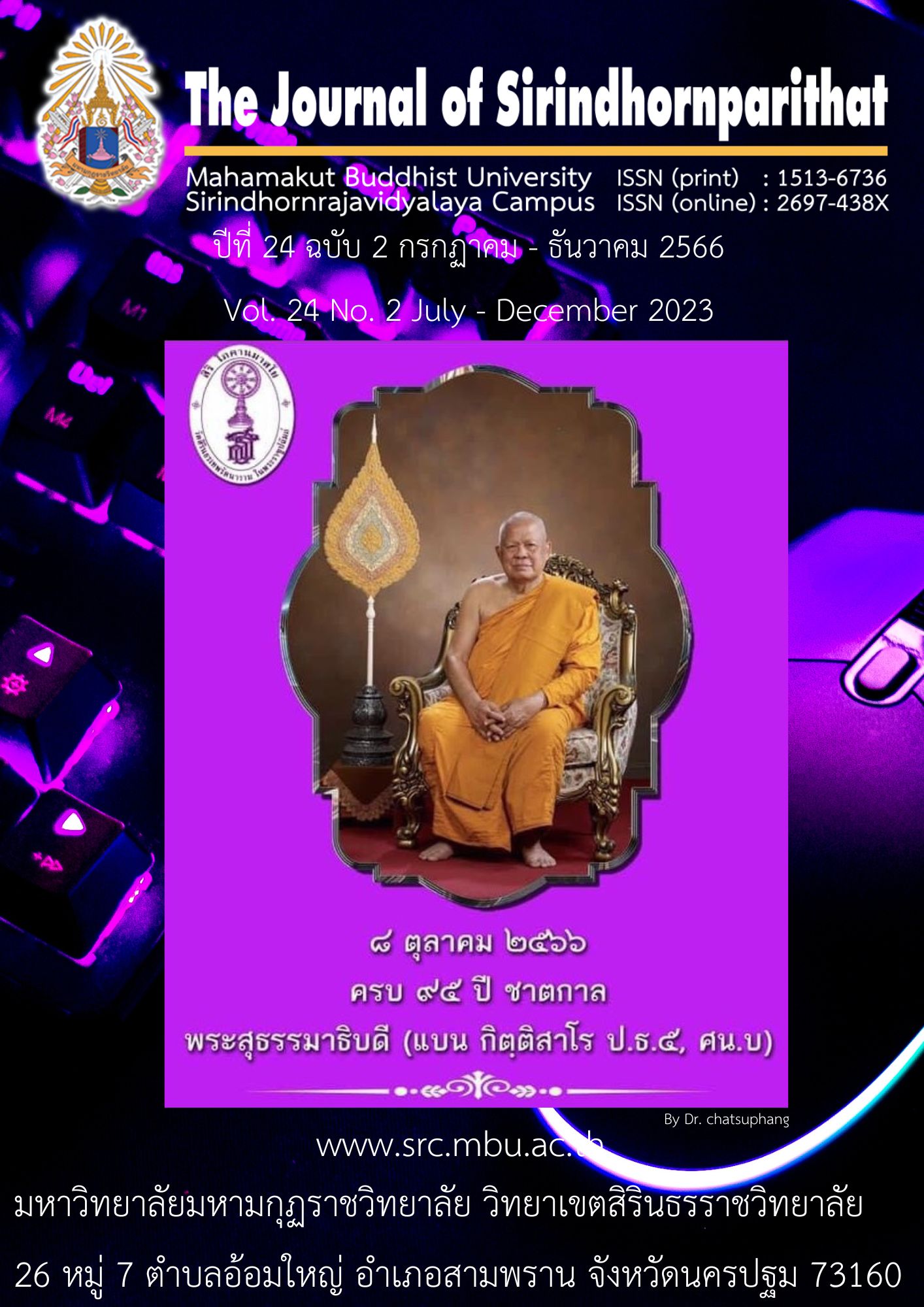Factor Analysis of Conflict Management of School Administrators in the 21st Century under Suphanburi Primary Educational Service Area
Keywords:
conflict management, school administrator, 21st centuryAbstract
The purpose of this research was to study the factor analysis of conflict management of school administrators in the 21st century. This mixed research was comprised the qualitative and quantitative method. The qualitative research consisted of in-depth interview and assessment of appropriate, accurate, feasible and useful. The key informants were school administrators, teachers, and academic specialists/ supervisors totaling 6 informants, derived by purposive sampling. The research instrument were in-depth interviews form and checklist form. The data was analyzed by frequency, percentage and content analysis. The quantitative research were 196 schools under Suphanburi Primary Educational Service Area. The informants were 784 school administrators and teachers derived by proportional stratified random sampling as distributed by district. The instrument was a questionnaire constructed by the researcher. Data was analyzed by exploratory factor analysis with using principal components analysis and orthogonal rotation by varimax.
The research results indicated that there were 5 the factor analysis of conflict management of school administrators in the 21st Century. The aspects were 1) problem-solving conflict management, 2) avoidable conflict management, 3) cooperative conflict management, 4) targeted conflict management, and 5) extended resource conflict management. Standardize factor loading between 0.594-0.980. All elements are statistically significant at .01 level. This proves that the models of humility can explain the factor analysis of conflict management of school administrators in the 21st century at the percentage of 69.137 which was appropriate, accurate, feasible and useful the factor analysis of conflict management of school administrators in the 21st century.
References
จิตติรัตน์ แสงเลิศอุทัย. (2557). วิธีวิทยากรวิจัยทางการศึกษา. นครปฐม: คณะครุศาสตร์มหาวิทยาลัยราชภัฏนครปฐม.
ชัชากร คัชมาตย์. (2564). ความขัดแย้งระหว่างบุคคลและความขัดแย้งภายในองค์การที่ส่งผลต่อประสิทธิผลการปฏิบัติงานของสมาชิกกลุ่มวิสาหกิจชุมชน ในเขตตำบลท่าพล จังหวัดเพชรบูรณ์. วารสารวิชาการและวิจัย มหาวิทยาลัยภาคตะวันออกเฉียงเหนือ. 11(1): 155-167.
ยุทธ ไกยวรรณ์. (2556). การวิเคราะห์สถิติหลายตัวแปรสำหรับงานวิจัย. กรุงเทพมหานคร: สำนักพิมพ์จุฬาลงกรณ์มหาวิทยาลัย.
สุทธญาณ์ ใจซื่อ. (2562). รูปแบบการบริหารความขัดแย้งตามแนวความคิดใหม่ในสถานศึกษาขั้นพื้นฐาน. วารสารวิจัยทางการศึกษา คณะศึกษาศาสตร์ มหาวิทยาลัยศรีนครินทรวิโรฒประสานมิตร. 14(1): 267-270.
สุภมาส อังศุโชติ และคณะ. (2557). The use of factor analysis for instrument development in behavioral sciences. สำนักทะเบียนและวัดผล มหาวิทยาลัยสุโขทัยธรรมาธิราช.
สุวิทย์ บัวกอง. (2559). การบริหารความขัดแย้งในสถานศึกษาขั้นพื้นฐาน กลุ่มโรงเรียนดงขุย สังกัดสำนักงานเขตพื้นที่การศึกษาประถมศึกษาเพชรบูรณ์ เขต 1. วิทยานิพนธ์ปริญญาศึกษาศาสตรมหาบัณฑิต สาขาการ บริหารการศึกษา บัณฑิตวิทยาลัย วิทยาลัยนครราชสีมา.
สํานักงานเลขาธิการสภาการศึกษา. (2560). แผนการศึกษาแห่งชาติพ.ศ. 2560 – 2579. กรุงเทพมหานคร: พริกหวานกราฟฟิค.
อภิรดี พลีน้อย. (2555). การพัฒนาการจัดการความขัดแย้งในชุมชน โดยใช้กระบวนการไกล่เกลี่ยข้อพิพาทชุมชนโดยอาสาสมัครไกล่เกลี่ยข้อพิพาทชุมชน. วารสารวไลยอลงกรณ์ปริทัศน์. 2(2): 47-48.

Downloads
Published
Issue
Section
License
Copyright (c) 2023 Mahamakut Buddhist University

This work is licensed under a Creative Commons Attribution-NonCommercial-NoDerivatives 4.0 International License.
บทความที่ได้รับการตีพิมพ์เป็นลิขสิทธิ์ของ มหาวิทยาลัยมหามกุฏราชวิทยาลัย วิทยาเขตสิรินธรราชวิทยาลัย
ข้อความที่ปรากฏในบทความแต่ละเรื่องในวารสารวิชาการเล่มนี้เป็นความคิดเห็นส่วนตัวของผู้เขียนแต่ละท่านไม่เกี่ยวข้องกับหาวิทยาลัยมหามกุฏราชวิทยาลัย วิทยาเขตสิรินธรราชวิทยาลัย และคณาจารย์ท่านอื่นๆในมหาวิทยาลัยฯ แต่อย่างใด ความรับผิดชอบองค์ประกอบทั้งหมดของบทความแต่ละเรื่องเป็นของผู้เขียนแต่ละท่าน หากมีความผิดพลาดใดๆ ผู้เขียนแต่ละท่านจะรับผิดชอบบทความของตนเองแต่ผู้เดียว



